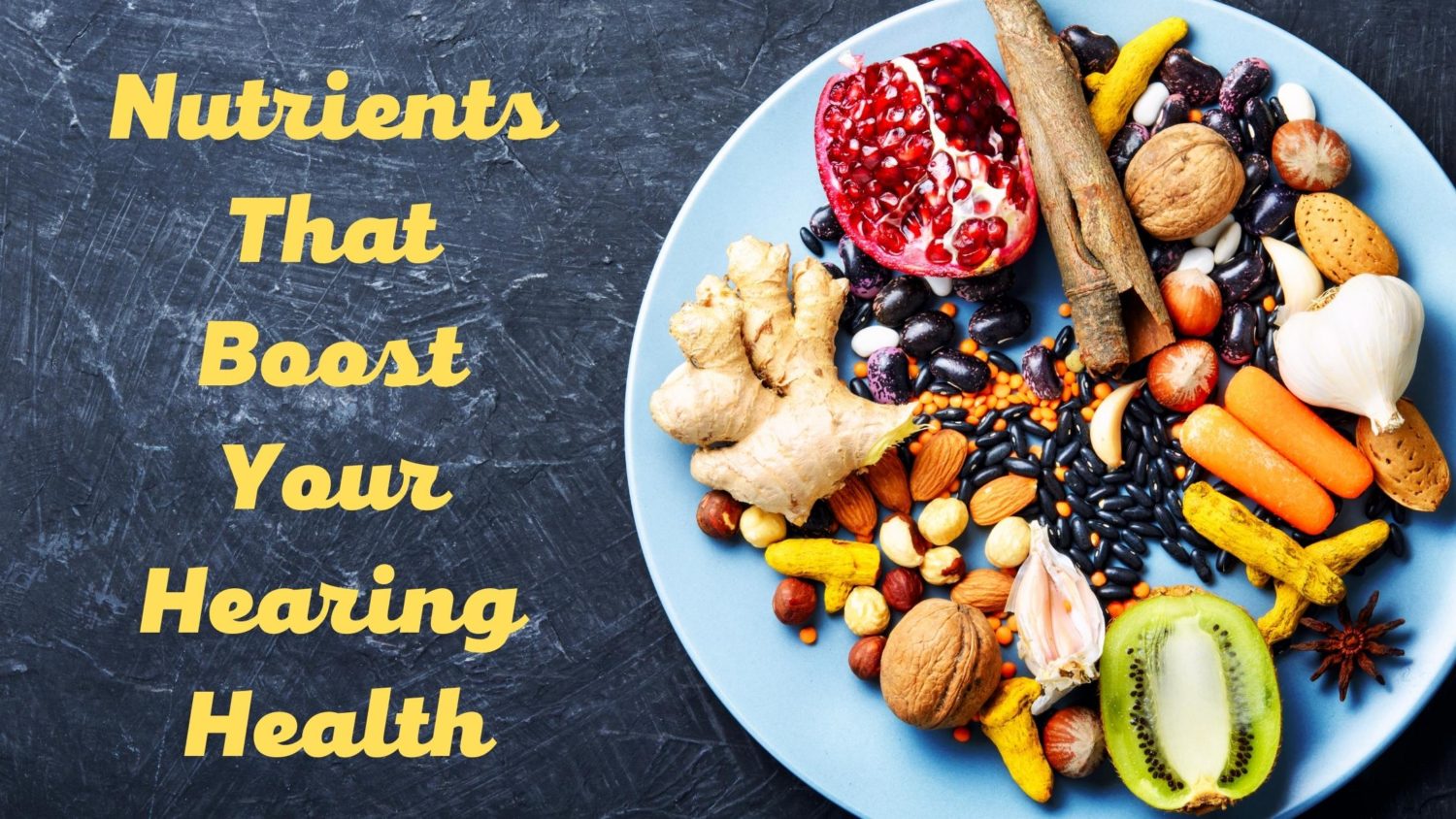- Are Cochlear Implants Worth It? - June 6, 2025
- Tips for Using Hearing Aids in Different Environments - May 27, 2025
- Rechargeable Hearing Aids vs. Battery-operated Hearing Aids - May 16, 2025
What is the best way to protect your hearing? The first thing that comes to mind is probably wearing your earplugs when things get too noisy. This is a crucial measure to take against hearing damage.
But there are other ways to take care of your hearing health, including exercise and–you guessed it–a balanced, nutrient-dense diet. In a scientific study published in the Journal of Nutrition, Health, and Aging, the authors state that “diet is one of the few modifiable risk factors for age-related hearing loss.” Here are some of the best vitamins and minerals for protecting your hearing, as well as maximizing your overall health.
Folate
Folate is good for so many things, including our ears! Also known as vitamin B-9, this vitamin helps our bodies to produce red and white blood cells. In 1999, a study published in the American Journal of Clinical Nutrition found that older women with significant hearing loss had 43 percent lower serum folate levels than women with normal hearing. A 2003 study showed that folate levels were significantly lower in patients with sensorineural hearing loss than those with no hearing disability. And in 2004, researchers found that men with age-related hearing loss had deficient serum folate levels.
The facts speak for themselves, so be sure to incorporate enough of this vital vitamin into your diet or take a supplement (the synthetic form of folate is called folic acid). Food is better, as it’s more difficult to overdose on folate from food. Foods rich in folate include spinach, asparagus, beans, broccoli, eggs, liver, and nuts.
Vitamin B-12
This vitamin is also essential in terms of our hearing health. In fact, in the same 1999 study mentioned above, it was found that older women with hearing loss had 48 percent lower serum folate levels than women with adequate hearing. Two additional studies confirmed that low serum vitamin B12 was tied to sensorineural hearing loss and age-related hearing loss.
Vitamin B12 naturally occurs in animal foods such as meat, fish, eggs, milk, and dairy products. If you’re a vegetarian or vegan, there are alternate sources of B12, such as fortified cereals and nutritional yeast. However, it would help if you thought about adding a vitamin B12 supplement to your diet.
Vitamin C
One of the quintessential vitamins, this water-soluble antioxidant is essential for the synthesis and maintenance of collagen, the most abundant protein in the human body. (Collagen makes up about 25 to 35 percent of the total protein content in the body). Vitamin C also supports the healthy functioning of the immune system, promotes the absorption of calcium into our bones, and helps our bodies in numerous ways.
This invaluable vitamin also helps protect our hearing by working with other antioxidants to rid the body of free radicals associated with hearing loss. Studies with guinea pigs found that a higher dietary intake of vitamin C protects the auditory brainstem from noise-related damage. Studies in humans have revealed that vitamin C supplementation can reduce sudden sensorineural hearing loss symptoms by reducing the number of reactive oxygen metabolites produced in the inner ear.
Fortunately, vitamin C is easy to incorporate into your diet. Suppose you want to boost your vitamin C intake. In that case, you can focus on eating more citrus fruits, papaya, strawberries, bell peppers, broccoli, Brussels sprouts, and dark leafy greens, which are all high in this essential vitamin.
However, if you think you may not be getting enough vitamin C through your diet alone, head to your local supermarket, drugstore, or health food store to pick up a supplement. This is such a necessary vitamin that you don’t want to risk having a deficiency. Also, as it’s difficult to overdose on vitamin C, this is one of the safest supplements to incorporate into your diet.
Vitamins E and A
In a recent study, researchers set out to study the link between antioxidants received through diet and supplements and rates of hearing loss. Over five years, the research team found that out of all of the antioxidants they studied, vitamins and A and E stood apart from the rest in terms of protecting hearing health. Participants who had the highest intake of vitamin A had a substantial 47 percent decreased risk of hearing loss, and those who ate a diet rich in vitamin E had a 14 lower likelihood of developing hearing problems.
Vitamin E-rich foods include avocado, sunflower seeds, spinach, sweet potato, almonds, butternut squash, and olive oil. Foods high in vitamin A include liver, beef, carrots, sweet potato, kale, spinach, broccoli, eggs, and grass-fed butter.
Taking Care of Your Hearing Health
With a well-rounded diet that is high in whole foods, fruit, and vegetables, our bodies usually receive all of the nutrition they need. But if your diet is lacking, you may want to reevaluate and take some time to plan out healthy meals in advance; a few essential supplements can help too.
Don’t forget to schedule a hearing test as a part of taking care of your hearing health! At our practice, we provide comprehensive hearing tests and hearing aid fittings. We also provide a level of service you simply won’t get online or at a big box store. Contact us today to schedule a consultation.

